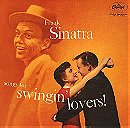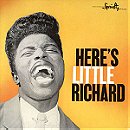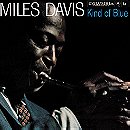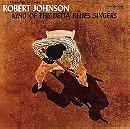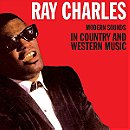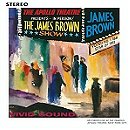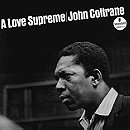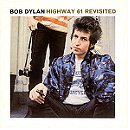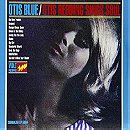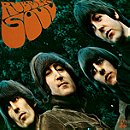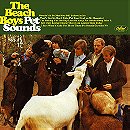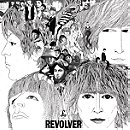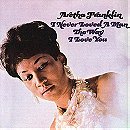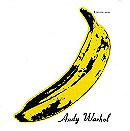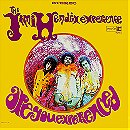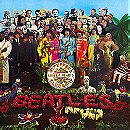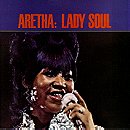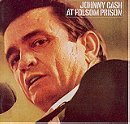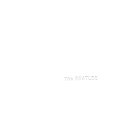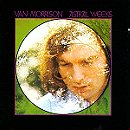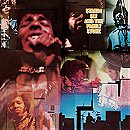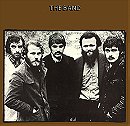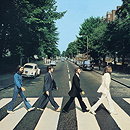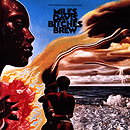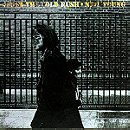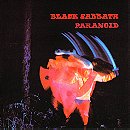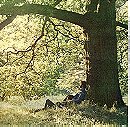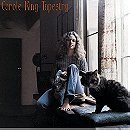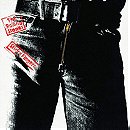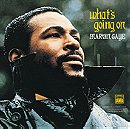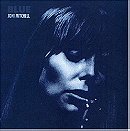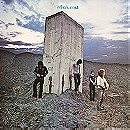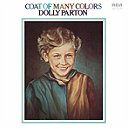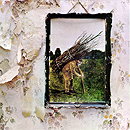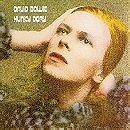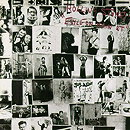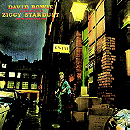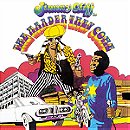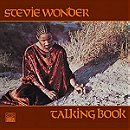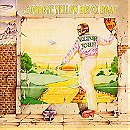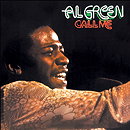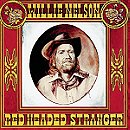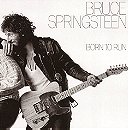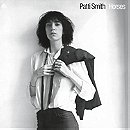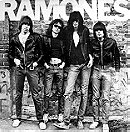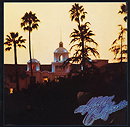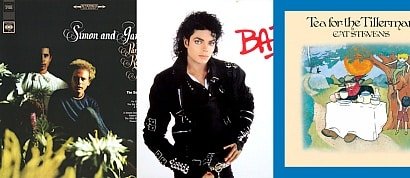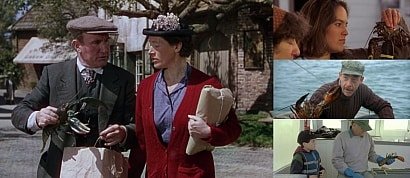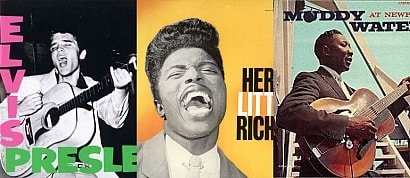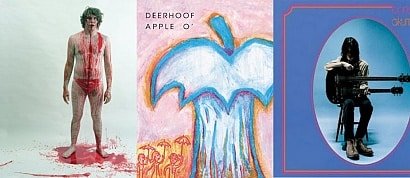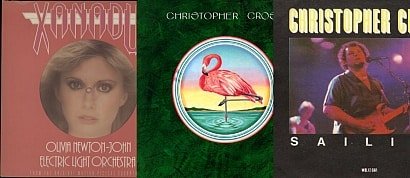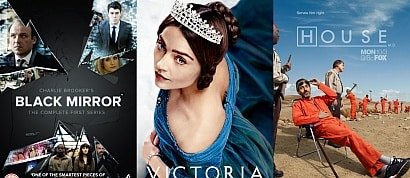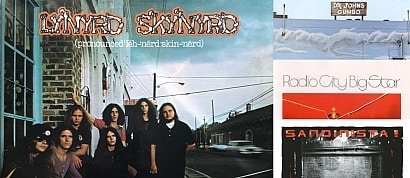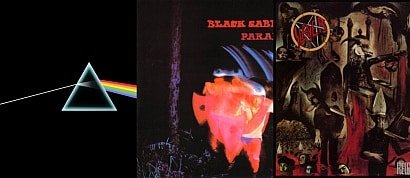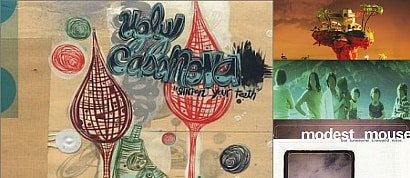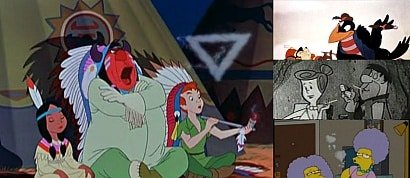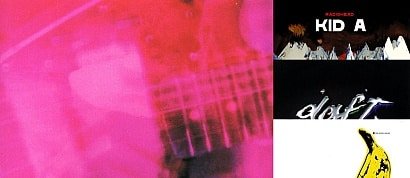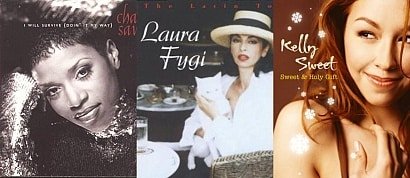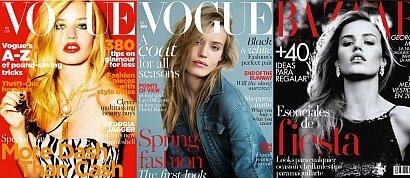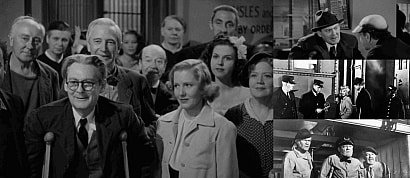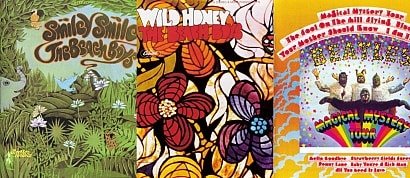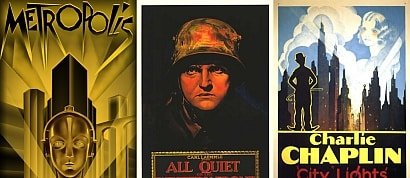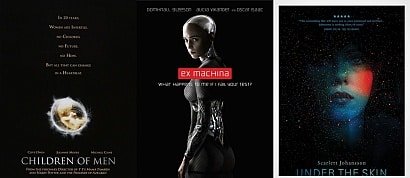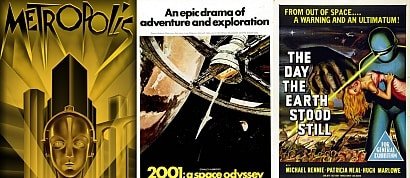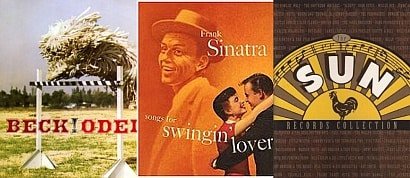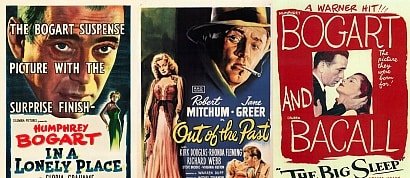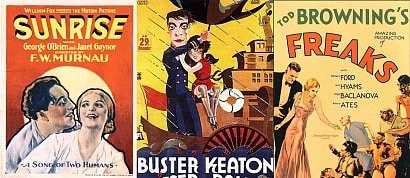TIME's 100 Greatest Albums
Sort by:
Showing 1-50 of 100
Rating:
List Type:
 Add items to section
Add items to section
1950s
So here's how we chose the albums for the All-TIME 100. We researched and listened and agonized until we had a list of the greatest and most influential records ever - and then everyone complained because there was no Pink Floyd on it. And that's exactly how it should be. We hope you'll treat the All-TIME 100 as a great musical parlor game. Read and listen to the arguments for the selections, then tell us what we missed or got wrong. Or even possibly what we got right.
Novels
Movies
Graphic Novels
Guilty Pleasures
Performances
Novels
Movies
Graphic Novels
Guilty Pleasures
Performances
In the Wee Small Hours - Frank Sinatra
“For a decade, Sinatra pushed to make a cohesive LP at a time when no one in the record business was thinking beyond singles. Finally, his break-up with Ava Gardner provided the perfect catalyst. These 16 ballads, recorded in just a few days, are the authoritative take on masculine loneliness. Like all Sinatra songs, they're not just beautifully sung but interpreted into drama: the title track is the initial confession of pain, Rodgers and Hart's "Glad to Be Unhappy" and Cole Porter's "I Get Along Without You Very Well" the futile denials, and "I'll Never Be the Same" the grim acceptance that the lady's gone for good.”
JxSxPx's rating:


Songs for Swingin' Lovers! - Frank Sinatra
“So much for feeling blue. With Ava Gardner in the rearview mirror and lord knows who in the backseat, Sinatra had his strut back and wasted little time in applying it to jazzier versions of pop standards like "Pennies From Heaven," "I've Got You Under My Skin" and "Makin' Whopee," all of which have now become the standard interpretations. The best moment of pure singing is on Cole Porter's traditionally zippy "Anything Goes," which Sinatra negotiates at a composed, I-ain't-singin'-this-like-no-fruity-show-tune, trot.”
JxSxPx's rating:


Here's Little Richard - Little Richard
“It doesn't get any more rock & roll than this. Richard Penniman already had six hits on the charts, starting with the cataclysmic "Tutti Frutti," before his label decided to gather them up on a long player. The results are glorious anarchy, let loose by a crack team of New Orleans musicians with the most distinctive, most outrageous voice of them all leading the charge. Just look at the songs he was banging out so rapid-fire: "Long Tall Sally," "Rip It Up," "Slippin' and Slidin'" — Here's Little Richard is twenty-eight minutes of gleeful mayhem. From Paul McCartney to Prince to Axl Rose, the legacy of Little Richard has never waned, no matter how many insurance ads he does.”
JxSxPx's rating:


Kind of Blue - Miles Davis
“In 1959, Miles Davis had already remade jazz in his own image several times over. The Birth of Cool introduced a smooth, sophisticated approach, and then Walkin' heated things up again. His classic '50s quintet raised the bar for small-group improvisation. But when he assembled an unprecedented all-star team (featuring John Coltrane and Cannonball Adderley on tenor and alto saxophones, and the masterful pianist Bill Evans) for the two-day sessions that became the Kind of Blue album, Miles left his most lasting mark. The open-ended songs, barely sketched out around "modes," or scales, rather than chord changes, were given just one or two takes — and the glorious results, the best-selling jazz disc of all time, are simultaneously delicate and powerful, and teeming with life.”
 Add items to section
Add items to section
1960s
King Of The Delta Blues Singers - Robert Johnson_III
“Johnson is serious, like the scorched earth," wrote Bob Dylan, "He seemed like a guy who could have sprung from the head of Zeus in full armor." The story at the time was that Robert Johnson sold his soul to the devil to learn how to play guitar. The revisionist history is that he wasn't really the greatest blues musician of his era, he was just lucky enough to get recorded. The response to both stories is simple — just listen to his songs, all 29 of which are contained on the two-disc King of the Delta Blues set. Though he was dead at age 27, Johnson's masterful writing, with its perfect control of images and emotion, and magnificent guitar playing loom large over music to this day. If you only know his songs through covers by the likes of the Rolling Stones ("Love in Vain"), Led Zeppelin ("Traveling Riverside Blues"), and Eric Clapton ("Crossroads"), buy this record today.”
Modern Sounds in Country and Western Music - Ray Charles
“No one did more to integrate the various genres of American music than Ray Charles, and here he doesn't just link up country with his trademark soul, but stirs in some big band—the opening of "Bye Bye Love" could have been composed by Glenn Miller—jazz and rock and roll, too. As much as this album was a musical labor of love, there was also an obvious subtext given its release at the height of the civil rights struggle. Charles knew that musical integration was a good metaphor for racial integration, and in particular his cover of Eddy Arnold's "You Don't Know Me" seems to carry a larger message for white audiences.”
JxSxPx's rating:


Live at the Apollo - James Brown
“In 1962, James Brown was known, but not—owwwww!—well known. Frustrated at his inability to break through, the ever-savvy J.B. asked his label to record one of his acclaimed live shows and release it as an album. When the label refused, Brown bankrolled the recording himself. "Are you ready for star time?" the emcee asks the Apollo crowd on the night of October 24, and for the next 40 minutes Brown puts on a flawless show of dynamism that lost nothing in the transfer to vinyl. Only a few thousand copies of the original were pressed, but demand became so great (it ultimately sold well over a million) that DJs played the album in its entirety, and the legend of the hardest working man in showbiz was born.”
JxSxPx's rating:


A Love Supreme - John Coltrane
“This album is a humble offering to Him, wrote John Coltrane in the linter notes to his masterwork A Love Supreme. "An attempt to say 'Thank You God' through our work." After groundbreaking work with Thelonious Monk and Miles Davis, Coltrane had taken flight as a solo artist. But after his monumental 1959 Giant Steps, he had taken his powerhouse "sheets of sound" approach to the tenor saxophone as far as he could go. A Love Supreme's four-part suite represented a new approach — sparer, more fluid, more intense. This musical prayer was the high-water mark, too, for Coltrane's classic quartet of pianist McCoy Tyner, bass player Jimmy Garrison, and monster drummer Elvin Jones. (The 2002 deluxe reissue includes the only live performance of the suite.) Elsewhere in the notes, Coltrane wrote that "God breathes through us so completely...so gently we hardly feel it...yet, it is our everything" This was never more true than in the music on A Love Supreme.”
Highway 61 Revisited - Bob Dylan
“From the pistol-crack snare that opens "Like a Rolling Stone" to the hazy dream visions of "Einstein Dressed as Robin Hood" that close "Desolation Row," the action never stops on Bob Dylan's most relentless and flawless album. Powered by Mike Bloomfield's slashing guitar lines and Al Kooper's bracing, rudimentary organ, the head-spinning race Highway 61 Revisited offers through America's music — rock, blues, folk, country — maps the strip of road that gives the record its title. The next forty years of Dylan's career would trace the routes mapped out on this album, and most of these songs remain part of his concert repertoire to this day.”
JxSxPx's rating:


Otis Blue/Otis Redding Sings Soul - Otis Redding
“Otis Redding never made a bad album. Hell, Otis Redding never cut a bad song. But most of the LPs released in his tragically short career were, in the manner of the times, patched and cobbled together. Otis Blue is the Big O's one album that most plays like an album. The songs are strong throughout, anchored by three Sam Cooke covers and Redding's versions of classics from "(I Can't Get No) Satisfaction" to "My Girl," climaxing in his own soul-stirrer "I've Been Loving You Too Long." The Stax house band — Booker T and the MGs, augmented by Isaac Hayes and the Mar-Key horns — crackles, and Redding's voice was never better. Which is truly saying something.”
Rubber Soul - The Beatles
“These 14 songs are The Beatles' pivot point. On the cover they still have the mop tops, but they're shaggy and the photo is slightly distorted. The opener, "Drive My Car," ("Beep beep'm beep beep yeah!") is rooted in their early cute phase while track two, "Norwegian Wood," is mysterious and pained and gives George his first sitar solo. An amazing document of progress that just happens to be crawling with songs — "Michelle," "In My Life," "Nowhere Man" — it's also one of rock's first album-qua-albums; not a raft for a few hits or a soundtrack to a wacky film, but something to be listened to and contemplated from start to finish.”
JxSxPx's rating:


Pet Sounds - The Beach Boys
“All of the original Beach Boys sang on Pet Sounds, but from the very beginning this was Brian Wilson's autocratic attempt to recreate the noises in his head. Laying the groundwork for the Beatles' Sgt. Pepper's Lonely Hearts Club Band a year later, Wilson plundered orchestra pits for new instruments and obsessed over the layering of what may be the most perfect harmonies in rock history. At the time of its release, Pet Sounds was a commercial disappointment, largely because it broke from the unadulterated chirpiness of the Beach Boys' early work. "Wouldn't It Be Nice" and "God Only Knows" teeter on the edge between adolescent euphoria and adult lament, while "I Just Wasn't Made For These Times" provided what was to become Wilson's defining lyric: "Sometimes I feel very sad."
JxSxPx's rating:


Blonde on Blonde - Bob Dylan
“In 1965 and 1966, Bob Dylan went on a creative sprint that has never been matched. Over the course of fourteen months, Dylan recorded Bringing It All Back Home and Highway 61 Revisited — and then capped it off with Blonde on Blonde, rock's first significant double album. Cut in Nashville with an ace team of studio musicians (and, for the first time, Robbie Robertson as Dylan's lead guitar foil), the album had a tense, shimmering tone that Dylan described as a "thin, wild mercury sound." Though unfortunately it opens with the tiresome one-liner "Rainy Day Women #12 and 35" (universally known as "Everybody Must Get Stoned"), after that the Blonde on Blonde reaches some of Dylan's greatest heights — which is to say, the very pinnacle of rock.”
JxSxPx's rating:


Revolver - The Beatles
“Make me sound like the Dalai Lama chanting from a mountaintop, John Lennon told engineer Geoff Emerick. The result, on "Tomorrow Never Knows," Revolver's concluding track, effectively kicked off the psychedelic rock movement. But the songs leading up to that still-trippy knock-out punch reveal the Beatles in transition on their most varied album. The melancholy strings on "Eleanor Rigby," the guitar attack of "And Your Bird Can Sing," and the loopy carnival of "Yellow Submarine" illustrate the unlimited palette the Fab Four were introducing to pop music — and make Revolver the best introduction to their work, and the strongest single example of their magnificence.”
JxSxPx's rating:


I Never Loved a Man the Way I Love You - Aretha Franklin
“The centerpiece of Franklin's first album for Atlantic Records was her cover of Otis Redding's "Respect," the song that, released in the midst of the racial and sexual tumult of 1967, meant so much to so many people. It remains her signature anthem, and for good reason, though its overexposure means that her powerful versions of Ray Charles' "Drown In My Own Tears" and Sam Cooke's "A Change Is Gonna Come," as well as her emotionally delicate performance of "Do Right Woman, Do Right Man," are often underappreciated.”
JxSxPx's rating:


The Velvet Underground & Nico - The Velvet Underground, Nico
“The band name came from a book about S&M while Nico, the possibly German, possibly Hungarian model turned actress turned singer, came courtesy of manager Andy Warhol. If all that weren't enough to make them the poster children of the avant-garde, there were also the songs. Lou Reed infused "Heroin" and "Venus in Furs" with lower east side realism and boho style. John Cale, an imposing Welshman tutored by ambient composer John Cage, introduced the rock world to feedback through his shrieking viola while Nico's vocals on "Femme Fatalle" and "I'll Be Your Mirror" were beamed in from an icy cabaret. It was hipness on vinyl, but with an abiding narcotic beauty.”
JxSxPx's rating:


Are You Experienced (US) - The Jimi Hendrix Experience, Jimi Hendrix
“Seattle-born former paratrooper James Marshall Hendrix worked the back-breaking chitlin' circuit playing guitar with the likes of Little Richard and the Isley Brothers. But to turn into a star, he had to go to England, where he joined forces with bass player Noel Redding and drummer Mitch Mitchell. The trio's debut was an unprecedented barrage of joyful noise — Hendrix literally redefined and expanded the sonic possibilities of the electric guitar (strung upside-down for this left-handed virtuoso), while the propulsive rhythm section heightened the attack. But what made Are You Experienced? more than a mere instrumental novelty was the strength of its songs — an even dozen classics including "Purple Haze," "Fire," and the dreamy "The Wind Cries Mary" that sound as revolutionary and as far beyond category today as they did the day they were recorded.”
Sgt. Pepper's Lonely Hearts Club Band - The Beatles
“Of course you're tired of hearing about how it turned rock into art. Of course the "sophistication" that this "concept album" introduced led to innumerable sins of pretentiousness. Of course the "tangerine trees and marmalade skies" sound dated. But have you actually listened to Sgt. Pepper lately? The songs are breathtaking, the musicianship unparalleled, the production perfect. There has never been another band that could do so many different things — songs like "Good Morning Good Morning," "Getting Better," and, of course, the climactic "A Day in the Life" cover more ground than you get in most rock careers. Backlash be damned; a splendid time is still guaranteed for all.”
JxSxPx's rating:


Lady Soul - Aretha Franklin
“The singing here isn't technically perfect—the roots of what would become Franklin's unwavering campaign of melody obliteration are evident—unless we're speaking emotionally, in which case there's not a wrong note. "Chain of Fools" (inspired by the lines of cotton pickers songwriter Don Covay saw growing up in the south) was the biggest hit and "(You Make Me Feel Like) a Natural Woman," written by the husband and wife team of Gerry Goffin and Carole King, became an enduring gender anthem, but it's a testament to Franklin that these songs sound unwritten, as if they didn't exist until she opened her mouth and gave them life. Even her cover of the Young Rascals' throwaway "Groovin'" is transcendent.”
JxSxPx's rating:


At Folsom Prison - Johnny Cash
“He never did any hard time, but Cash had a natural sympathy for men who gave in to their worst impulses. At California's Folsom Prison, songs like "Cocaine Blues" ("When I was arrested I was dressed in black/ They put me on a train and they took me back") and "25 Minutes to Go" ("With my feet on the trap and my head on the noose/ Got 5 more minutes to go") lose some of their defiance and gain some sadness, particularly when they're interrupted by announcements like, "88419 is wanted in reception." The final track, "Greystone Chapel," was written by Folsom inmate Glen Sherley. Cash heard it for the first time the night before the show and learned it fast so that the last lyric his audience heard was, "Inside the walls of prison my body may be/ But my Lord has set my soul free."’
JxSxPx's rating:


The Beatles (The White Album) - The Beatles
“The end had already begun. The Beatles' manager Brian Epstein was dead, and (other than George) they felt burned by their visit with the Maharishi. In the middle of these sessions, Ringo was the first Beatle to temporarily quit the band. Most of these thirty songs were recorded by various subsets of the group, who were seldom all in the studio at the same time. Producer George Martin fought hard to edit the project down to a consistent single album, but the Beatles were right to keep the scraps, experiments, and jokes — the tension and confusion of the time became central to The Beatles (which was originally called A Doll's House, a fitting title for its odds-and-ends feel). The album's curious, unique genius reveals the Beatles at their hardest ("Helter Skelter"), softest ("Julia"), and weirdest ("Revolution 9").”
JxSxPx's rating:


Astral Weeks - Van Morrison
“It is one of rock's least-likely masterworks. Van Morrison had made a name for himself as the lead singer of the Belfast bar band Them, which achieved immortality with the garage anthem "Gloria." He then signed a solo deal in the US, skimming the Top Ten with the irresistible singalong "Brown-Eyed Girl," but he dismissed the album that came from those sessions. Signing with Warner Bros. Records, Morrison then assembled a bunch of jazz-based players, took them into a New York studio, and emerged two days later with Astral Weeks, a languid, impressionistic, utterly gorgeous song cycle that sounded like nothing he had done previously — and really, nothing anyone had done previously. Morrison sings of lost love, death, and nostalgia for childhood in the Celtic soul that would become his signature. Astral Weeks didn't reach the charts, but its mystic poetry, spacious grooves, and romantic incantations still resonate in ways no other music can.”
Stand! - Sly & the Family Stone
“As a late 60s metaphor for hope, the only thing that topped Sly Stone's multi-ethnic, mixed-gender band was the music it produced. "Everyday People" ("different strokes, for different folks") and "I Want to Take You Higher" were utopian anthems propelled by Larry Graham's slap bass while "Don't Call Me Nigger", Whitey proved that Sly wasn't (yet) blind to contemporary reality. The lyrics are rarely simplistic, the singing never less than spectacular, and each track has such an abundance of rhythm that standing still isn't a possibility.”
The Band - The Band
“It took a group that was eighty percent Canadian to assemble what might be rock's strongest meditation on American history. After years as the barnstorming bar band the Hawks and a few turns as Bob Dylan's comrades in arms on his first electric tours, the five members of the Band retreated to a house outside of Woodstock and recorded a pair of unprecedented masterworks. Music from Big Pink defined the back-porch rootsiness that remains a central inspiration for the "alternative country" movement, but it was The Band that solidified their accomplishment. Passing their instruments around like it was a hootenanny, such songs as the joyful hoedown "Rag Mama Rag," the achingly wistful "Whispering Pines," and the Civil War epic "The Night They Drove Old Dixie Down" all represented uncharted territory for pop, and tackled the astonishing scope of this American life.”
Abbey Road - The Beatles
“The last album the Beatles released was the messy, joyless Let It Be. But the last album the Beatles recorded was Abbey Road, their most polished and crafted long player. Though the break-up was looming, you'd never know it from the driving funk of "Come Together" or "Something"'s gentle warmth — much less the majestic harmonies on "Because." Side two's famous medley might only be a bunch of bits and scraps stuck together, but it still sounds fantastic — Paul's surging, melodic bass playing alone would make this album a landmark. A worthy last chapter for the greatest band of all.”
JxSxPx's rating:


 Add items to section
Add items to section
1970s
Bridge Over Troubled Water - Simon & Garfunkel
“These lifelong friends pretty much hated each other by the time their fifth and final album came out. Simon wrote most of the songs while Garfunkel was acting in Catch-22, and when they got together to finalize material they feuded endlessly. (Garfunkel vetoed a song about Nixon; Simon overruled a Bach chorale. Call it a draw for them and a victory for listeners.) What made it onto the album are some of the duo's saddest melodies ("El Condor Pasa," "The Only Living Boy in New York") and most buoyant harmonies ("The Boxer," "Cecilia"). Only Garfunkel sang on the title track, which, according to BMI, was the 19th most performed song of the 20th century, spawning versions that run the quality gamut from Aretha Franklin's transcendent cover at the Fillmore in '72 to Clay Aiken's considerably less transcendent cover on American Idol in '03.”
Moondance - Van Morrison
“After the dreamy acoustic sound of Astral Weeks, Van Morrison switched gears. For Monndance, he built his arrangements around a powerful horn section, veering more toward the punchy, old-school R&B he loved than Astral's jazzy meanderings. Morrison's singing got more aggressive, too, on the gospel-flavored "Brand New Day" or the glorious "Caravan," the first in a series of tributes to the otherworldly powers of radio. He kept his croony side, though, on the murmuring "Into the Mystic" and, of course, the immortal, swinging title track — a staple of prep schools and lounge acts to this day, and still none the worse for wear.”
Bitches Brew - Miles Davis
“Jazz-rock fusion would get a well-deserved bad name in the Seventies for its self-indulgent noodling, but that wasn't how it started. Inspired by the visionary work of James Brown, Jimi Hendrix, and Sly Stone, Miles Davis began incorporating funk grooves and electronic instruments into his music — first with the languid, contemplative In A Silent Way (still so cool that it was recently sampled by Diddy), and then on the double-LP monster Bitches Brew. Many called Miles a sell-out, but such critics obviously didn't listen to the album's complex, hypnotic cauldron of sound. Virtually every major fusion star played on Brew — Chick Corea, John McLaughlin, Wayne Shorter — but even the best of them seldom matched its depth and intensity.”
After the Gold Rush - Neil Young
“Since coming to California from his native Toronto, Neil Young had joined Buffalo Springfield and seen the band break up; teamed with Crosby, Stills, and Nash for the massive Déjô Vu album; and released a few discs of his own, including Everybody Knows This is Nowhere, a brain-shredding guitar powerhouse. The mysterious, elusive After The Gold Rush represents the morning after the mayhem, both personal and cultural — the sound of Young waking up with a post-'60s hangover, catching his breath, and trying to sort through the wreckage. The cryptic title song and "Southern Man" are the tracks familiar to casual fans, but only Neil Young could have written the chilling "Don’t Let It Bring You Down" or the homespun "Only Love Can Break Your Heart" — much less both on the same album.”
Paranoid - Black Sabbath
“Thanks to This is Spinal Tap and The Osbournes, it is now impossible to think of this band as anything other than a bunch of hysterical wankers. At the time of Paranoid's release, though, the world was convinced that these working class chums from Birmingham, England (originally called the Polka Tulk Blues Band) were either satanists or an incredible facsimile. Some of that owed to Ozzy Osbourne's declaration that he had sat through The Exorcist a gazillion times (bat-biting would come later); most was due to the dark thunder of Tony Iommi's guitar playing, Geezer Butler's massive bass riffs and apocalyptic songs like "War Pigs.Luke's Wall" and "Iron Man," which are no less great for being totally incomprehensible. For better or worse, Paranoid is the birthplace of heavy metal. Mark it with a headstone.”
JxSxPx's rating:


John Lennon/Plastic Ono Band - John Lennon, Plastic Ono Band
“Never before or since has an image been so quickly destroyed and rebuilt into something just as powerful. On the heels of the Beatles' break-up, John Lennon entered "primal scream" therapy, and channeled all of the resultant emotional turmoil and exposure into his first solo album. Plastic Ono Band, recorded with a bare-bones trio and majestically produced by Phil Spector, revealed feelings never expressed on a pop album. Lennon sang of his fears ("Isolation"), his personal losses ("Mother"), and his journey from disillusionment to independence ("God"). From the spare loveliness of "Look at Me" to the raging proto-punk of "Well Well Well," Lennon's writing was never sharper, and his still-underrated singing stands with rock's finest.”
Tapestry - Carole King
“Her songs with husband Gerry Goffin had been hits for talents as diverse as Aretha Franklin with "(You Make Me Feel Like) a Natural Woman" and Little Eva with "The Locomotion," but it took a push from James Taylor to get King to record a few herself. King's voice has limits, range chief among them, and that's a critical part of Tapestry's charm; her take on "Natural Woman" feels more vulnerable than Franklin's, her slowed down "Will You Love Me Tomorrow?" more poignant than the Shirelles'. The warmth of those easy melodies drove Tapestry to sales of 10 million copies and created the archetype of the female singer-songwriter.”
JxSxPx's rating:


Sticky Fingers - The Rolling Stones
“In the aftermath of the Altamont disaster, which would have broken or shaken most bands, the Rolling Stones came back nastier and more assured than ever — Sticky Fingers is loaded with sex, drugs, and rock & roll, and became their biggest seller to date. Massive riffs power "Bitch," "Brown Sugar" (proof that a slave trader's sexual fantasies can make for a Number One hit), and "Can't You Hear Me Knockin'," a showcase for new guitarist Mick Taylor. "Dead Flowers" is a definitive comedy of decadence, "Wild Horses" is as tender as the Stones can get, and "Sway" is pure terror. It doesn't have the sprawl and mood of their next release, Exile on Main Street, but Sticky Fingers truly captures the Stones at the peak of their game.”
What's Going On - Marvin Gaye
“Motown Records — which introduced the concept of the assembly line to pop music — had no interest in giving its artists creative control, much less in venturing into territory that was explicitly political. But Marvin Gaye, the label's greatest pure vocalist, was prepared to wait out Motown founder Berry Gordy, Jr — and when Gordy finally, grudgingly caved to Gaye's artistic ambitions, the result was one of the defining albums of its time. What's Going On not only kicked off an era of unprecedented social consciousness in R&B, it also introduced a whole new style of making records, layering multiple vocal lines and rhythm tracks into mellow, hypnotic grooves that made the hard-nosed message of songs like "Inner City Blues (Make Me Wanna Holler)" and the immortal title song utterly irresistible.”
JxSxPx's rating:


Blue - Joni Mitchell
“It's not deceptively simple, just simple. From the bare arrangements of acoustic guitar and piano with maybe a hint of dulcimer, to the lyrics — "All I really want our love to do/ Is to bring out the best in me/ and in you, too" — Mitchell whittles her journal entries and melodies down with poetic economy and relies on her falsetto to add the dramatic tension. Enjoyment depends entirely on your tolerance for sincerity, but even cynics concede the greatness of lines like, "I could drink a case of you and still be on my feet."’
JxSxPx's rating:


Who's Next - The Who
“Pete Townsend wanted to follow Tommy with Lifehouse, another rock opera, but after two fruitless years and a near-suicidal breakdown, he gave up. Freed from thematic grandiosity, The Who took Lifehouse's rough material and made a hit-filled album that was plenty large. "Baba O'Reilly" (named for Townshend's guru Meher Baba and minimalist composer Terry Riley) opens with a skittering synthesizer that flirts with melody until Townshend moves to the piano and bangs out the iconic notes of a completely different melody. "Behind Blue Eyes" has drumless stretches and an emotional, though not wussy, acoustic guitar lead. "Won't Get Fooled Again" is so dense that it's hard to believe it's played by a three piece. In addition to providing enduring lyrics ("Meet the new boss/ Same as the old boss"; "It's only teenage wasteland") Who's Next's eight tracks provide the only natural curb on the expansion of the C.S.I. franchise.”
Coat of Many Colors - Dolly Parton
“Anyone skeptical of a music career that's been gradually obscured by Parton's exuberance on talk show couches needs to pay attention to this archetypal album. The title track, about a mother's love conquering poverty, is built on an image so central to Christians (the mother weaves a box of rags into a coat for her daughter) that it's a wonder country's voracious song sharks overlooked it for so long. It's followed by "Traveling Man," in which a girl and her mama chase the same no good guy ("The traveling man was a good bit older/ But a girl needs arms to hold her"), and "If I Lose My Mind," in which Parton's boyfriend cheats right in front of her eyes. Parton's not above sentimentality, but it's in constant battle with her feminist/realist leanings, and the whole package is tied together with a voice so crystalline it can't help but crack a little when the going gets rough.”
JxSxPx's rating:


Led Zeppelin IV - Led Zeppelin
“Titles? We don't need no stinkin' titles! Guitarist Jimmy Page, no doubt in a moment of complete sobriety, wanted to see if Led Zeppelin's music could sell itself, so the band's name, as well as all other words, were struck from the album cover. Instead, each member picked an occult symbol representing their mystical identity to appear on the LP's spine. Why? Because it was 1971. Enough fragrant air has been exhaled about "Stairway to Heaven" (which was never released as a single and thus never appeared on the Billboard charts) for several lifetimes, but "Going to California" is the best thing they ever played at a pace below 'manic,' "Rock and Roll" is the best thing they ever played above 'manic' and "When the Levee Breaks" is their most convincing blues. Just call it Zeppelin's greatest record.”
Hunky Dory - David Bowie
“At a moment when no one knew whether David Bowie was a transvestite, provocateur, folk singer or space alien, the then 24-year-old released an album that slyly capitalized on the confusion. "Life on Mars?" placed him in deep space, while a trilogy to his idols ("Andy Warhol," "Song for Bob Dylan" and "Queen Bitch" — for Lou Reed) clarified his earthbound ambition to be a boho poet with prodigal style. “Changes,” meanwhile, proved he could write a great pop song about who he really (maybe) was.”
JxSxPx's rating:


“Raucous, boozy, weary, violent and sex-obsessed, this double album sounds like the work of heathen outlaws, which of course it was. On the run from Fleet street mobs, narcotics officers and the Inland Revenue, the Stones holed up at Keith Richards' chateau in the south of France and composed an epic blues that went beyond tribute and beyond blue. Producer Jimmy Miller valued atmosphere over precision in his recording techniques, so Mick Jagger competes with a wooly sax and a juke joint piano and still his vocals make "Sweet Virginia" feel purple, like a bruise that's fun to touch. Through out, Jagger manages to sound intently focused and deeply stoned, while Charlie Watts minds the store with impeccable rhythm.”
‘"I became Ziggy Stardust," David Bowie once said. "David Bowie went totally out the window...I got hopelessly lost in the fantasy." Possibly the first true rock concept album, complete with narrative, The Rise And Fall Of Ziggy Stardust and The Spiders From Mars tells the story of a Martian rock star whose mission is to offer sex and salvation to earthlings. In the climactic "Rock & Roll Suicide," Ziggy is torn apart by the fans he inspired. With such killer songs as "Suffragette City" and "Moonage Daydream," Bowie matched his arty, theatrical ambitions with crunching, arena-ready rock, setting in motion the glam rock movement that echoed from Alice Cooper to Marilyn Manson. For the album's 30th anniversary, a few of Ziggy's songs were broadcast into space from Roswell, New Mexico, using a high-tech laser beam. We continue to await response from the interstellar rock star community.”
JxSxPx's rating:


The Harder They Come - Desmond Dekker, Jimmy Cliff, The Slickers, Toots & the Maytals, The Melodians, Scotty
“The 1972 movie was a mixed bag, but its soundtrack served as most Americans' first introduction to reggae. Jimmy Cliff (playing Ivanhoe Martin, would-be reggae singer turned renegade) provided vocal star power on the title track and the funeral-staple "Many Rivers to Cross." Desmond Dekker & The Aces showed off reggae's roots in 50s R&B on "(007) Shanty Town." Just as good are the contributions from mostly forgotten acts like The Melodians and The Slickers, whose "Johnny Too Bad" is a parable of the film—only far better. "The Harder They Come" was only a modest success, but it opened the door for the arrival of Bob Marley, global superstar, a few years later.”
JxSxPx's rating:


Talking Book - Stevie Wonder
“When he reached the age of majority, former child prodigy Stevie Wonder renegotiated a contract with Motown Records that granted him creative independence. This was big news as a business move — but when you're dealing with perhaps the purest raw talent in pop music, "independence" takes on another meaning. His first release under these terms, Music Of My Mind, demonstrated that Wonder could work as a truly self-contained unit — writing and producing all the songs, and playing virtually all the instruments, entirely alone. His next album, Talking Book, secured his position as the reigning genius of his era. With earth-shaking funk ("Superstition"), candy-coated pop ("You Are the Sunshine of My Life"), and an emotional range from the blues of "Maybe Your Baby" to the soaring exuberance of "I Believe (When I Fall in Love It Will Be Forever)," in a career full of classics, Talking Book is Stevie's most perfect album.”
Goodbye Yellow Brick Road - Elton John
“Longevity has a way of obscuring greatness, and while no 70s actuary would've bet a dime on John to make it through the century, let alone the decade, no 70s music fan would have placed him anywhere but atop the pop heap. This double LP is overstuffed, but its highlights—"Candle in the Wind," "Bennie and the Jets," "Saturday Night's Alright for Fighting"—remain standards more than 30 years later thanks to Bernie Taupin's sharpest lyrics, John's propulsive keyboard skills and vocals that leap into falsetto without losing any of their power.”
JxSxPx's rating:


Call Me - Al Green_II
“Al Green was hands-down the dominant soul singer of the Seventies, and his run of albums, especially in the first half of the decade, was so consistently strong that it's hard to pick a favorite. I'm Still In Love With You has the back-to-back perfection of "Love and Happiness" and "I'm Glad You're Mine." Let's Stay Together has, well, "Let's Stay Together." But top to bottom, Call Me is the one to beat, with the effortlessly sexy title song and the devastating "Here I Am (Come and Take Me)." Covers of songs by Hank Williams and Willie Nelson seal Green's linking of Memphis and Nashville traditions. And the closing song, "Jesus is Waiting," turned out to be the bridge to Green's future in the pulpit.”
Red Headed Stranger - Willie Nelson
“In the early Seventies, Willie Nelson was a songwriter legend, with such classics as "Crazy" and "Hello Walls" behind him, but wasn't a major-league artist on his own. When his Nashville home burned down, he hightailed it back to Texas and began remaking himself as a country music outlaw, as he and such kindred, independent spirits as Waylon Jennings became known. With Red Headed Stranger, a self-produced (heresy to the Nashville establishment) concept album about a renegade preacher on the run, Nelson introduced a new sense of ambition and possibility to the genre. "Blue Eyes Crying in the Rain" was a Number One single, and when Stranger was followed up with the breakthrough collection Wanted! The Outlaws (with Jennings, Jessi Colter, and Tompall Glaser), country music had entered a new era — and Willie Nelson was an international superstar.”
Born to Run - Bruce Springsteen
“Springsteen's first two albums were commercial duds. He had no money, and the sound he wanted for his third record—The Boss later described it as 'Roy Orbison singing Bob Dylan produced by Phil Spector'—required months of studio tinkering to perfect. So Jimmy Iovine (then a recording engineer, now the head of Interscope Records) took care of hiding stacks of overdue bills from the record label while Springsteen obsessed over things like just how many guitar overdubs the title track needed. If it seems trivial to note that the final tally was 12, listen again, because, it's the accumulation of details, both musical (the warm wind of the saxophone on "Tenth Avenue Freeze Out," the violin that comes out of nowhere on "Jungleland") and lyrical ('The screen door slams/ Mary's dress waves...') that makes Springsteen's grandiosity both operatic and personal. No one before or since has tried to pack as much of the American experience into 39 minutes, and no one has come as close to succeeding.”
Horses - Patti Smith
“Because Smith was a poet before she was a singer... and John Cale of the Velvet Underground produced... and her lover Robert Mapplethorpe took the cover photo, Horses is often praised for fusing classical verse, feminism, punk and the avant-garde—which makes this epic debut sound like it belongs on a syllabus for a class few people would willingly take. In fact, it's a rock record of overwhelming power. For all her poetic skill, the album's most memorable words are its first: "Jesus died for somebody's sins, but not mine." From there, Smith's voice—like a match dragging across the side of a matchbox just before it ignites—and unrelenting band (guitarist Lenny Kaye, pianist Richard Sohl, drummer Jay Dee Daugherty and bassist Ivan Kral) swagger through a complete reinvention of Van Morrison's Gloria and several nine minute volcanoes that feel far more romantic and revolutionary than any mere poetry.”
JxSxPx's rating:


Ramones - Ramones
“Legend has it that Joey, Johnny, Dee Dee and Tommy spent a total of $6,400 recording this debut, which leads to an obvious question: Where'd all the money go? These 14 tracks sound like they were mixed on a runway at LaGuardia, but the playing is impressively clean given its speed (no song lasts longer than 2:40) and Joey's singing proves you don't need range to sound exuberant. Music historians long ago decided that Ramones is punk rock's Rosetta Stone, but "Judy is a Punk," "53rd & 3rd" and "Blitzkrieg Bop" (whose famous "Hey! Ho!/ Let's go!" was an homage to the Bay City Rollers) succeed mostly because of the pop influences at their core.”
JxSxPx's rating:


Hotel California - Eagles
“Henley, Frey and co. spent most of the nation's bicentennial year locked in a studio making a record about the nation on the verge of its bicentennial. Decadence was their major topos, and they wanted to reference drugs and innocence lost and lots of other stuff, though, like much of their catalog, Hotel California seems a lot smarter when you listen to it than when you talk about it. "Life in the Fast Lane" drew a line between the band's country-tinged past and rock and roll future, but the big hit was the title track, a sprawling epic with Satanic undertones that might have been subconsciously cribbed from Jethro Tull's "We Used to Know" when the bands toured together. As for the warm smell of colitas, fans are split on whether the word is Spanish slang for cannabis buds or an easy lay. Given the band and the era, the safest guess is both.”
Load more items (50 more in this list)
People who voted for this also voted for
Rolling Stone 500 Greatest Albums Part III 201-300
Lobster Scenes - Movies
My Top 100 from "1001 albuns you must hear..."
Pitchfork's Top 200 Albums of the 2000s
Favorite Soft Rock Songs: 80's
TV Posters I Posted ~ 3+ Votes
Rolling Stone 500 Greatest Albums Part V 401 - 500
[Favs] My Top 500 Albums
yord's Top 100 Favorite Albums
smoke 'em if you got 'em: cartoons
Favorite albums
Albums I listen for the first time in 2018
Covers: Georgia May Jagger
Movies Characters on Crutch
Fay Bainter’s Movies
More lists from JxSxPx
50 Essential Albums of 1967
TCM's Essentials: 52 Must See Movies
The Top 40 Sci-Fi Movies of the 21st Century
The 100 Greatest Science-Fiction Films
RS 500: Part 4
Slant’s 100 Best Film Noirs of All Time
TCM’s Essentials Vol 2: Another 52 Must See Movies
 Login
Login
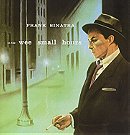
 61
61
 8.5
8.5
 0
0
